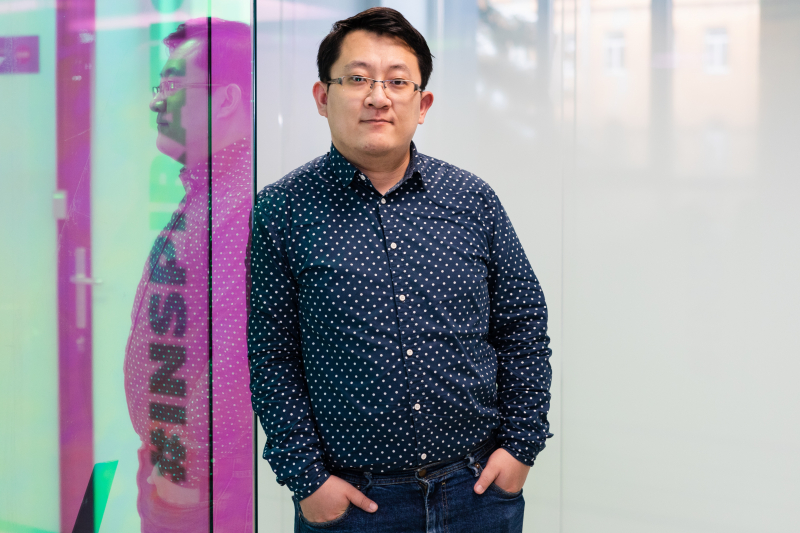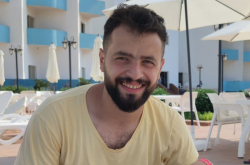Why did you decide to study in Russia?
I graduated from school in 2011 and back then I was really into computer technologies and programming. I was especially interested in the applications of these technologies for automation. I wanted to do something like what the guys at Boston Dynamics were doing.
When I was choosing a university, my first thought was ITMO, world-famous for its ICPC-winning programmers. I reasoned that it would be a great place to study at and didn’t even apply to other universities – my goal was to enroll in ITMO.
Was it hard for you to adapt to life in a new country?
At first, yes, it was really challenging. When I first came to St. Petersburg, I didn’t even know where I was. And my main problem was, of course, the language. I will always remember my very first lecture: I didn’t understand any of it, because it was completely in Russian and I only had one year of learning the language under my belt.
It was also extremely hard for me to navigate the various campuses, rooms, and administrative offices. I had no idea where to hand in the documents that I needed to submit. These days, it’s all much easier thanks to digital navigating systems, English translations for every sign on campus, and the opportunity to submit most documents online.
It took two years for me to start understanding what people around me were talking about. But even after ten years here my Russian is still pretty bad. In spite of this, I am no longer a foreigner here – St. Petersburg is my second home.
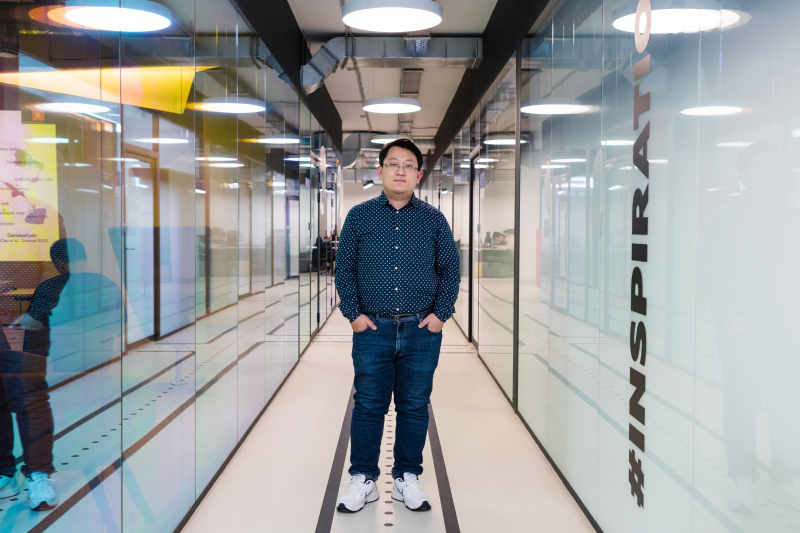
Qi Yang. Photo by Dmitry Grigoryev, ITMO.NEWS
You studied robotics for your Bachelor’s and Master’s degrees. Why did you decide to change your major for PhD studies?
Having spent six years studying robotics, I realized I was much more interested in AI than in control methods. I don’t really see much of a conflict between what I did in my Master’s studies and what I am doing now. Actually, over the six years prior to my PhD studies, I worked with machine learning. For my Master’s project, I taught a robot to identify road signs and plan its route accordingly. In order to achieve this, the robot had to analyze a lot of data from its sensors – and it was while I was implementing this project that I realized I liked working with data. I visited several lectures by Andrey Filchenkov, a specialist in machine learning (an associate professor at ITMO’s Information Technologies and Programming Faculty – Ed.), and that helped me make up my mind about getting a PhD in this field. Moreover, I had the required background.
Did you have any regrets about leaving robotics behind?
To be completely honest, my enthusiasm for machine learning and big data is hard to compare with what I felt for robotics. I am now 100 times more excited about what I do. It’s hard to explain, I am just following my heart – sometimes you have to listen to it and venture into changes.
Even my previous research supervisor, Dr. Sergey Chepinskiy, supported my decision and told me to follow my passion. You won’t be able to do your all for your projects if you are not really interested in what you are doing.
Why did you opt to continue with your studies instead of landing a job at a major IT company?
Upon graduating from my Master’s program, I sent my CV to several robotics companies in China and got some really nice offers. But I was concerned that it was a field I was no longer that invested in. I wanted to stay at ITMO – I really like the atmosphere here and the fact that people here help each other not only with their research but also with daily problems. I really like my colleagues, so I am planning to stay here for a postdoc after I get my PhD.
I also get to combine studies and work. My current research supervisor Alexander Farseev founded his own company, SoMin.ai, in Singapore and I am a data scientist there.
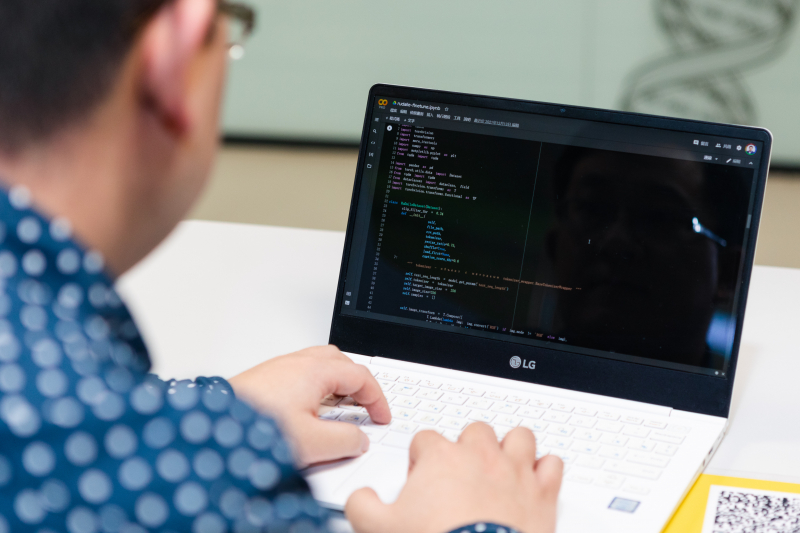
Photo by Dmitry Grigoryev, ITMO.NEWS
Tell us more about your PhD research project.
I am responsible for user profiling on social media. My main task is to identify correlations between a user’s personality type and their online activities. The easiest examples here are extraverts and introverts. The first group have a very extended network of social interactions, they have many friends and followers, and this number only keeps growing. Introverts prefer studying and reading to communication, they are more picky with the content and information they consume.
I study the way such personal traits influence a user’s engagement with content posted by brands. These days almost every company is on Facebook and Twitter, where they post not only ads or new products but also jokes, memes, and useful tips. We would like to know why users like a certain post – do they simply love the brand or was this post really creative? We need to find out why each user liked a post based on their personal traits.
How do you identify a user’s personality type?
We use the Myers-Briggs classification, which is based on four character traits: extraversion/introversion, thinking/feeling, sensing/intuition, and judging/perceiving. All combinations of these types result in 16 personality types, who act and interact with others differently.
At first, we collected the data of those users who shared the results of their Myers-Briggs tests online – we analyzed their pages, their presence on different platforms, their behavior online, etc.
Now we have already learned to identify a user’s personality with high precision based on the content they post online – regardless of whether it is text or pictures. It sounds like magic, but there are actually certain behavior patterns that can be picked upon.
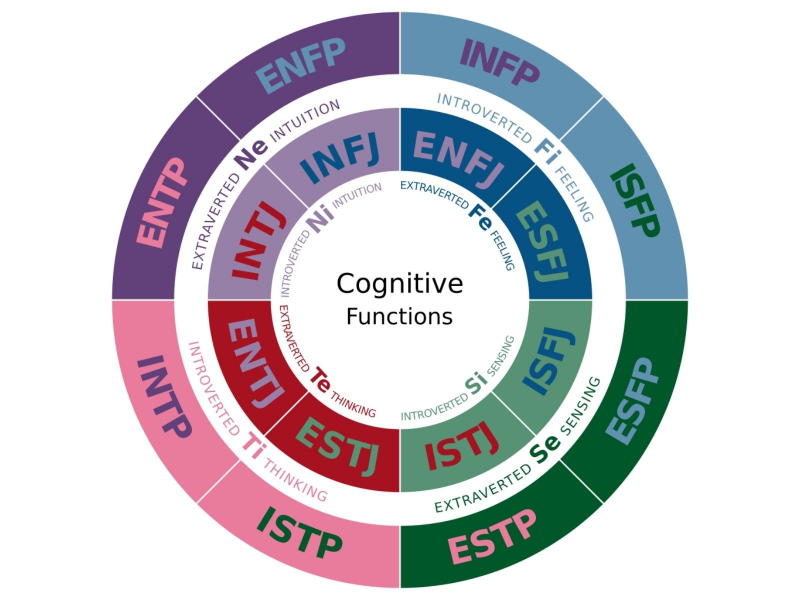
An illustration of the Myers-Briggs personality types: the background color in each tile represents the dominant function, while the text color represents the auxiliary function. Credit: Jake Beech / Wikimedia Commons / CC BY-SA 3.0
And then this information is used for marketing and targeted advertising?
The technology we developed is partly applied in SoMin.ai – we help companies and brands run more efficient marketing campaigns, increase user engagement, and cut down on marketing costs. Our methods help us choose more precise targeting settings so that only those users who are interested in a brand or product will see the ad.
What do you think about the ethical side of the matter?
Of course, we all learned a lesson from Donald Trump’s election campaign. Our task is to study and develop new technologies, so we do our best during research and production to protect user privacy. We also make sure that users knowingly consent to our lawful and proper use of their publicly available data posted on social media. I think that the next step in AI development will be the creation of corresponding ethical principles which will ensure that all user data is used appropriately.
As for marketing and advertising, users can benefit from learning about new products and services that might come in handy. We all hate irrelevant ads. For instance, I will happily click on a banner promoting a course in machine learning, but I would absolutely hate, say, something shopping-related. In this sense, targeted advertising is useful but only if it truly fits a person’s needs and interests.
Are you planning to apply this technology in sociology research to make it more impactful?
We actually had a project where we analyzed the effect of the COVID-19 pandemic on society, business, and finance. But the problem is that we don’t have access to clinical data because we don’t collaborate with healthcare specialists and hospitals. So we didn’t really continue with this project.
On the other hand, as we work with commercial companies we have a great amount of marketing data that I can use in my research. Here everything depends on having the data we need for our work.
Do you have a dream project?
I haven’t really thought about it. It is my belief that in the near future AI will become so well-developed that it will be able to help people with solving various problems. I am thinking something like J.A.R.V.I.S. from the Iron Man franchise – I would definitely love to contribute to that.
